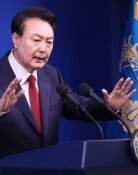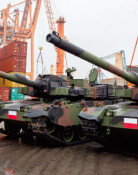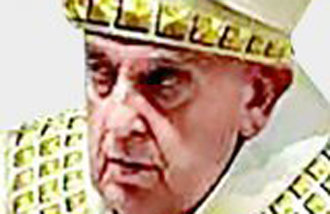Repatriation of S. Korean prisoners, POWs
Repatriation of S. Korean prisoners, POWs
Posted October. 24, 2011 03:46,
South Koreas Unification Minister Ryu Woo-ik suggested the Freikauf model as a potential method of getting repatriated South Korean prisoners of war in North Korea. "Freikauf," which means buy freedom, is how West Germany paid a ransom to bring back dissidents and political prisoners held in East Germany. West Germany paid 3.46 billion German marks to East Germany in return for repatriating 33,755 people between 1963 and 1989. The money translated to about 100,000 marks per person. When calculated at the exchange rate of the time, this amounted to 53 million won (46,000 U.S. dollars) per head.
Freikauf was successful in part because East Germany saw its economy collapse due to the failure of its planned socialist economy, and thus proactively sought to sell political prisoners. The East German government, which feared expansion of dissident groups, was able to kill two birds with one stone by earning money while filtering out social dissidents. In the case of the two Koreas, however, too many obstacles exist. North Korea denies the very existence of South Korean prisoners of war, and has blocked the South from even mentioning the issue. North Korea only included four to five POWs in its groups for family reunions by categorizing them as special separated families during the Roh Moo-hyun administration.
Even if the two Koreas agree on releasing the POWs in exchange for money, the government cannot afford to use the German method, in which West Germany sent items such as crude oil and jewels that could be immediately cashed in. West Germany redeemed 2.1 billion marks, or 60 percent of the Freikauf fund, that East German leader Erich Honecker cashed in after German reunification. The situation in North Korea is quite different, however. North Korea is scrambling to develop weapons of mass destruction as soon as it gains money. Seoul could also create a dilemma if Pyongyang demands an excessive ransom.
The measure could also spawn controversy for compensating Pyongyang for its atrocities. Seoul repatriated Lee In-mo in 1993 and 63 other long-term North Korean prisoners of war in 2000 without precondition. It was a big mistake to unilaterally send them to North Korea without demanding exchange with kidnapped South Koreans or South Korean POWs who remain detained in the North against their will. An estimated 517 kidnapped South Koreans and 500 POWs are believed to be living in the North.
A group of families of South Koreans forcefully taken to the North during the Korean War is staging a forget-me-not pin campaign to renew their commitment remembering and bringing kidnapped South Koreans back to the South. One sad story is of Shin Sook-ja, nicknamed daughter of Tongyeong (in South Korea), who remains imprisoned in the North`s notorious Yodeok Camp with her two daughters. South Korea should never give up despite the harsh reality. The government should find a practical way to bring the South Koreans back by overcoming the high barriers posed by North Korea.
Headline News
- Korean president faces debate limitations unlike U.S. counterpart
- KEPCO's first quarter profits failed to meet market expectations
- Teenagers are left out of discussions about national pension
- 2 consultative bodies submit minutes regarding increasing number of medical students
- Woo Sang-hyuk's rivalry and friendship transcend borders







